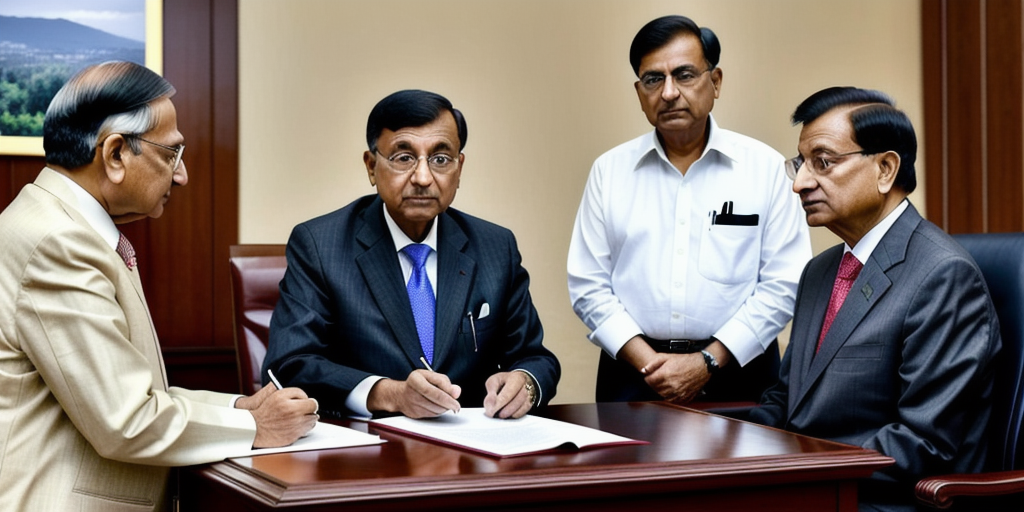
CJI Gavai to set up bench to hear justice Varma’s plea
How did your country report this? Share your view in the comments.
Diverging Reports Breakdown
CJI Gavai to set up bench to hear justice Varma’s plea
Chief Justice of India Bhushan R Gavai said he would constitute a bench to hear the petition filed by Allahabad High Court judge Justice Yashwant Varma. Justice Varma sought an expedited hearing of his plea challenging the findings of a Supreme Court-appointed in-house inquiry panel. The panel concluded there was “strong inferential evidence” of his “covert or active control” over a stash of charred cash found at his official residence in Delhi earlier this year. The development comes even as the central government plans to bring an impeachment motion in Parliament to remove the judge from office. The inquiry committee, comprising then high court chief justices Sheel Nagu (Punjab & Haryana), GS Sandhawalia (Himachal Pradesh), and Justice Anu Sivaraman (Karnataka high court), was formed on March 22 and submitted its findings to CJI Sanjiv Khanna on May 3. The committee concluded that even if the money had been stored without his explicit knowledge, his presence in its presence “oded public trust and constituted a grave breach of judicial trust”
Justice Varma sought an expedited hearing of his plea challenging the findings of a Supreme Court-appointed in-house inquiry panel that concluded there was “strong inferential evidence” of his “covert or active control” over a stash of charred cash found at his official residence in Delhi (when he was posted at the Delhi high court) earlier this year.
Senior advocate Kapil Sibal, appearing for Justice Varma, mentioned the matter before the CJI and urged for early listing, citing important constitutional issues involved in the case. The CJI agreed but said it would not be proper for him to be part of the hearing bench, given his previous involvement in internal discussions surrounding the case.“I think it will not be proper for me to take up that matter because I was part of that conversation,” remarked the CJI, but assured that a bench would be constituted to take it up.
The development comes even as the central government plans to bring an impeachment motion in Parliament to remove Justice Varma from office. As the monsoon session of Parliament is underway and political momentum builds for his removal, 145 Lok Sabha MPs and 63 Rajya Sabha lawmakers submitted separate notice in their respective Houses for impeachment of Justice Verma on July 21 – the first day of the current session.
As reported first by HT, Justice Varma moved the apex court on July 17, filing a writ petition challenging the May 3 report by a three-member judicial inquiry panel and the subsequent May 8 recommendation by then CJI Sanjiv Khanna urging Parliament to initiate impeachment proceedings against him.
Terming the panel’s report “unsustainable” and the process “perverse,” the petition alleged grave violations of natural justice and accused the committee of functioning with an “outcome-driven approach” based on a “preconceived narrative.” The panel, Justice Varma said, failed to investigate foundational facts such as ownership, authenticity, and actual recovery circumstances of the charred cash allegedly found on March 14 at his Delhi residence following a fire.
While acknowledging that some currency may have been recovered from the outhouse, the judge maintained that further inquiry was essential to establish culpability. Instead, the panel concluded its proceedings hastily, the petition claimed, reversing the burden of proof and placing the onus on the judge to disprove misconduct.
The inquiry committee, comprising then high court chief justices Sheel Nagu (Punjab & Haryana), GS Sandhawalia (Himachal Pradesh), and Justice Anu Sivaraman (Karnataka high court), was formed on March 22 and submitted its findings to CJI Khanna on May 3.
Justice Varma’s petition also challenged the then CJI’s May 8 recommendation to Parliament, arguing that it was based solely on an inquiry report that violated constitutional protections afforded to sitting judges.
The Supreme Court’s May 8 press note confirmed that Justice Varma had submitted a written response to the inquiry report, reiterating his denial of any wrongdoing and terming the allegations a “conspiracy.” However, the top court noted that the judge had essentially restated his earlier stand.
During the in-house inquiry, Justice Varma was divested of all judicial work and transferred back to his parent high court in Allahabad. He was serving on the bench of the Delhi High Court when the Marc 14 incident took place.
The 64-page inquiry report cited “strong inferential evidence” to conclude that Justice Varma had “covert or active control” over the charred cash. While admitting that no direct evidence linked him to the currency, the panel held that his conduct “belied the trust” reposed in a constitutional judge and warranted impeachment proceedings.
“The burden shifted upon Justice Varma to account for the money by giving a plausible explanation, which he failed to do, except projecting a flat denial and raising a bald plea of conspiracy,” the report said.
The committee concluded that even if the money had been stored without his explicit knowledge, its presence in his official residence “eroded public trust” and constituted judicial misconduct of a grave nature.
As first reported by HT on June 18, Justice Varma had earlier rejected CJI Khanna’s suggestion to resign or opt for voluntary retirement. In a detailed letter dated May 6, the judge accused the panel of procedural violations and asked the then CJI to reconsider both the process and the outcome.
The fire incident at Justice Varma’s residence on March 14 triggered the entire sequence of events. According to officials, sacks filled with charred currency notes were found at the outhouse of his Delhi bungalow by firefighters. Chief justice of Delhi High Court flagged the issue to the CJI, leading to the formation of the inquiry panel.
